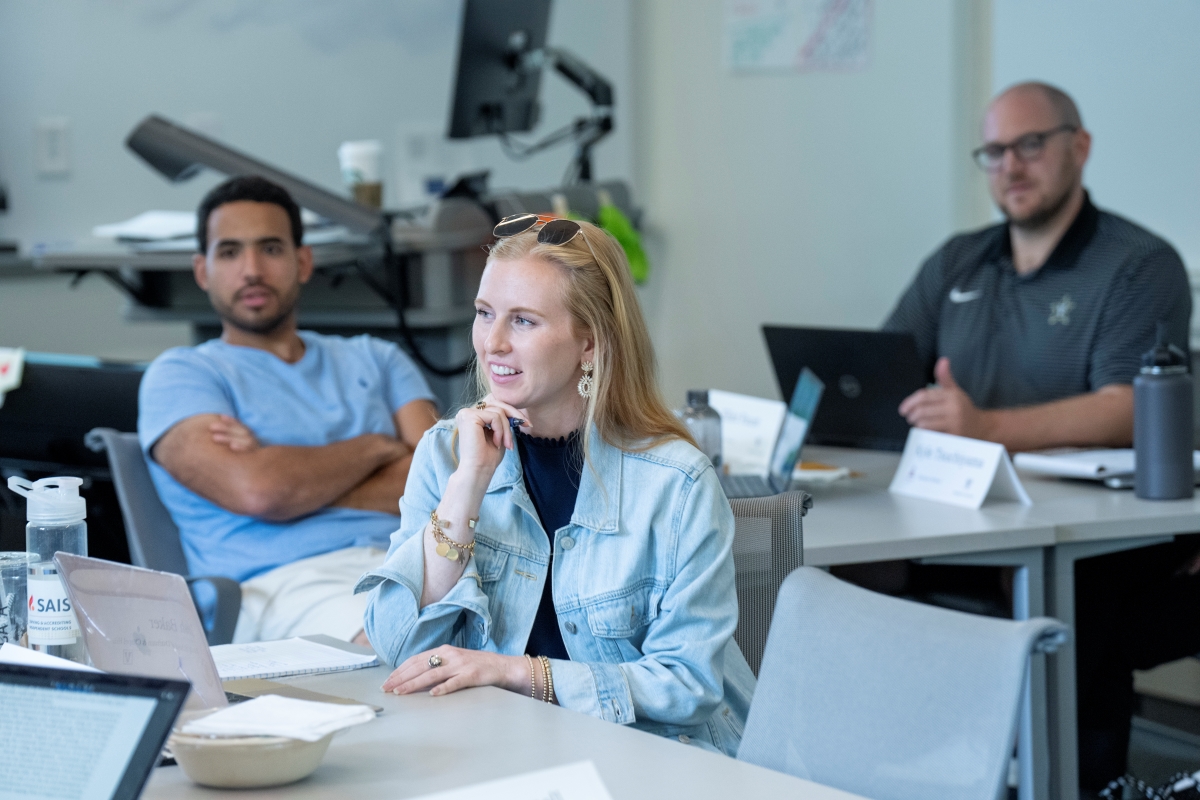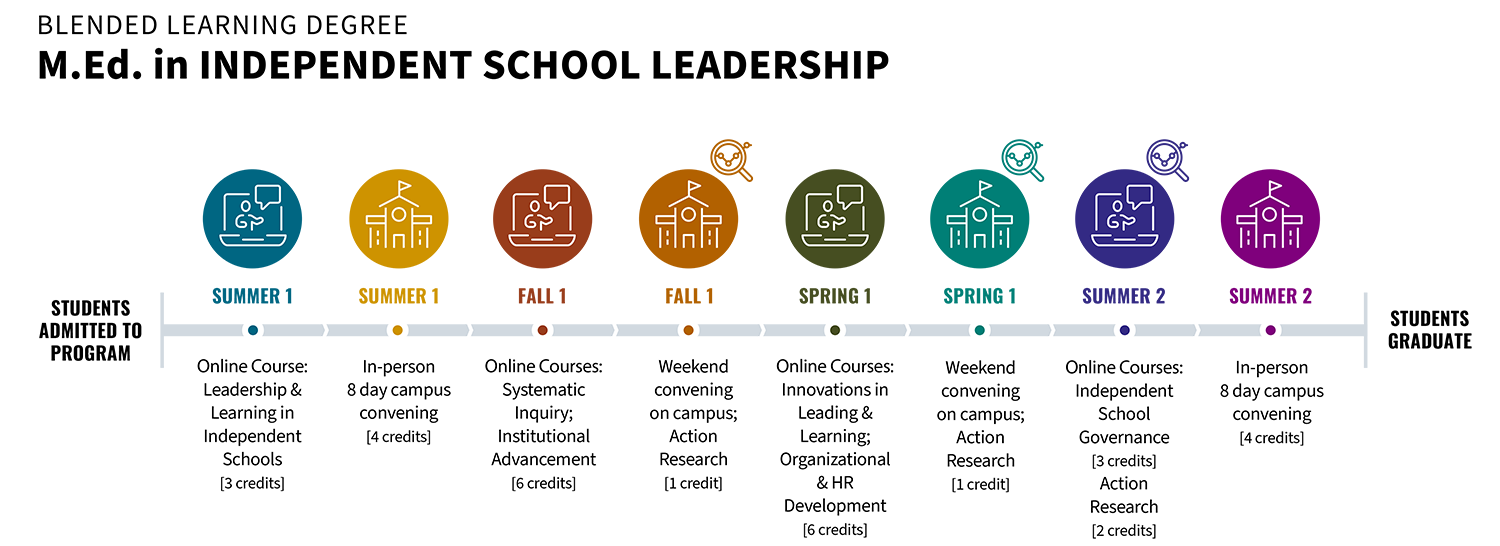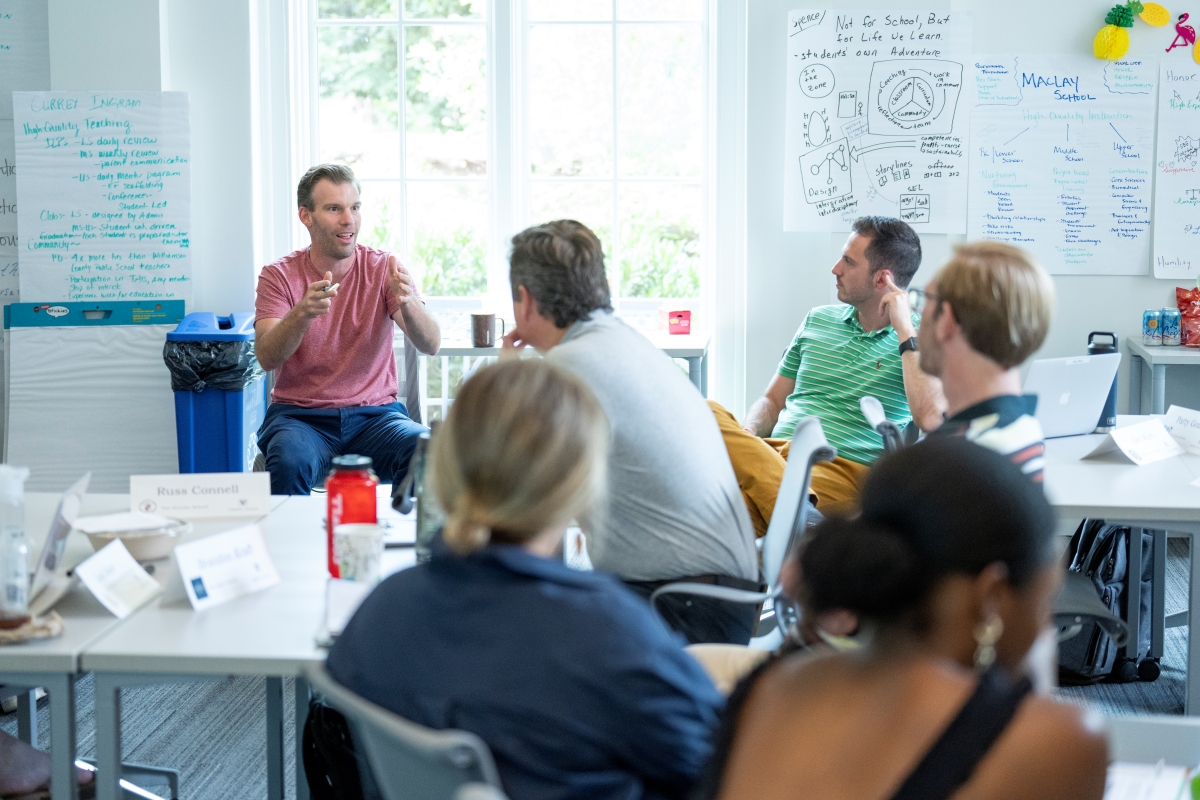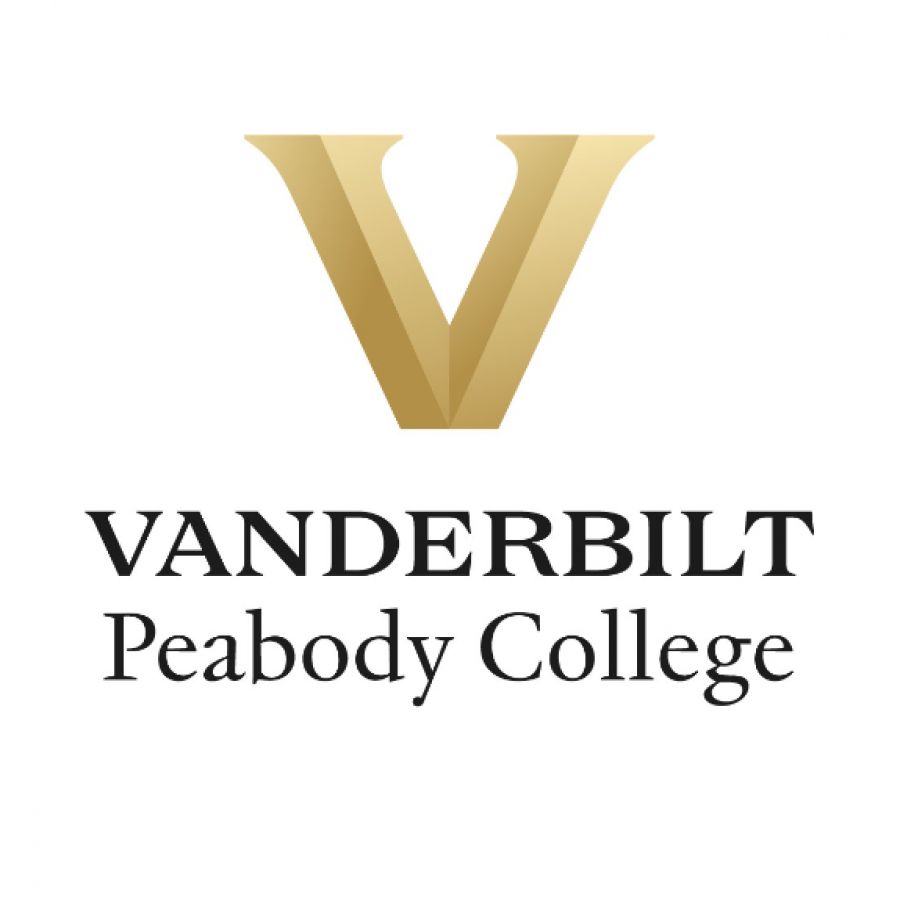Quick links
Program Overview
Vanderbilt's Peabody College offers a blended (online and in-person) Master's of Education in Independent School Leadership. This M.Ed. program is specifically designed for working professionals who bring at least two years of relevant independent school work experience. The ISL graduate degree program will strengthen the invaluable skills you've already developed and give you the tools to propel yourself to new leadership opportunities and to even greater impact.
Our 15 month, part-time program consists of a diverse cohort of independent school professionals like you-leaders who are advancing in their careers and who bring important perspectives grounded in real-world challenges. Our program is a blended learning model conducted online throughout the school year and in-person through two 8-day, on-campus summer sessions, where you'll meet your cohort in person, work with world-class Vanderbilt faculty, and build community on our beautiful Nashville campus. Our online learning experience combines self-directed asynchronous curricula with weekly synchronous sessions at which cohort members build community and actively engage in discourse related to relevant theory and practice within independent school systems.
This blended Master's of Education in Independent School Leadership offers a distinctive Peabody experience-including deep engagement and interaction with Vanderbilt's faculty and independent school scholar practitioners, as well as a lifelong professional network-within an intentionally designed curriculum and robust opportunities for mentorship and action research design. The program is career-embedded so you can immediately apply what you are learning, in real time, to the work you are doing on the ground in your independent school.
-
#2
Best Educational Administration Program, U.S. News & World Report 2025
Prospective Student Resources
We compiled a webinar and slideshow for prospective students who are looking for more information about the Independent School Leadership M.Ed. These resources provide specific information about admissions, course sequences, curriculum, and more.

Program Facts
Program Director: Carrie Grimes
Admissions Coordinator: Kashiri Favors
Admission Term: Summer
Credit Hours: 30
Application Dates
We are no longer accepting applications for the 2025 cohort.
Request Information

Program Curriculum
Our prescribed curriculum is designed to meet your professional needs. It is anchored in both foundational knowledge and core competencies of independent school leadership. You will also complete an action research project to advance your leadership and scholarship. Thirty credits are required to graduate with Vanderbilt's M.Ed. degree in Independent School Leadership.
Curriculum Themes and Commitments


